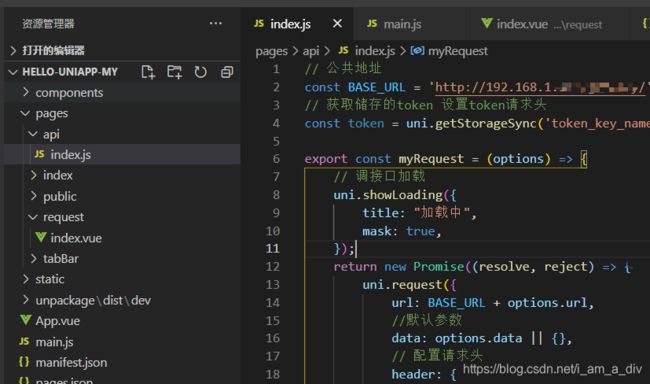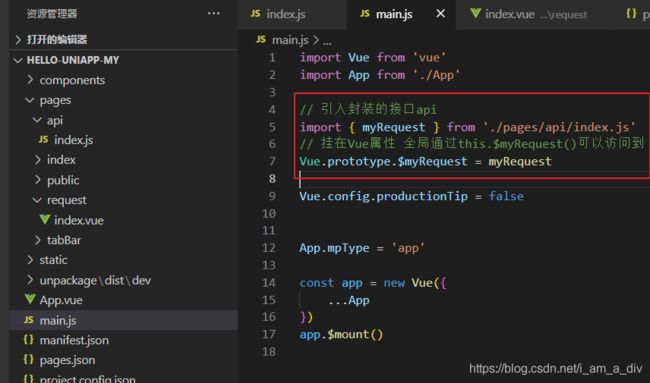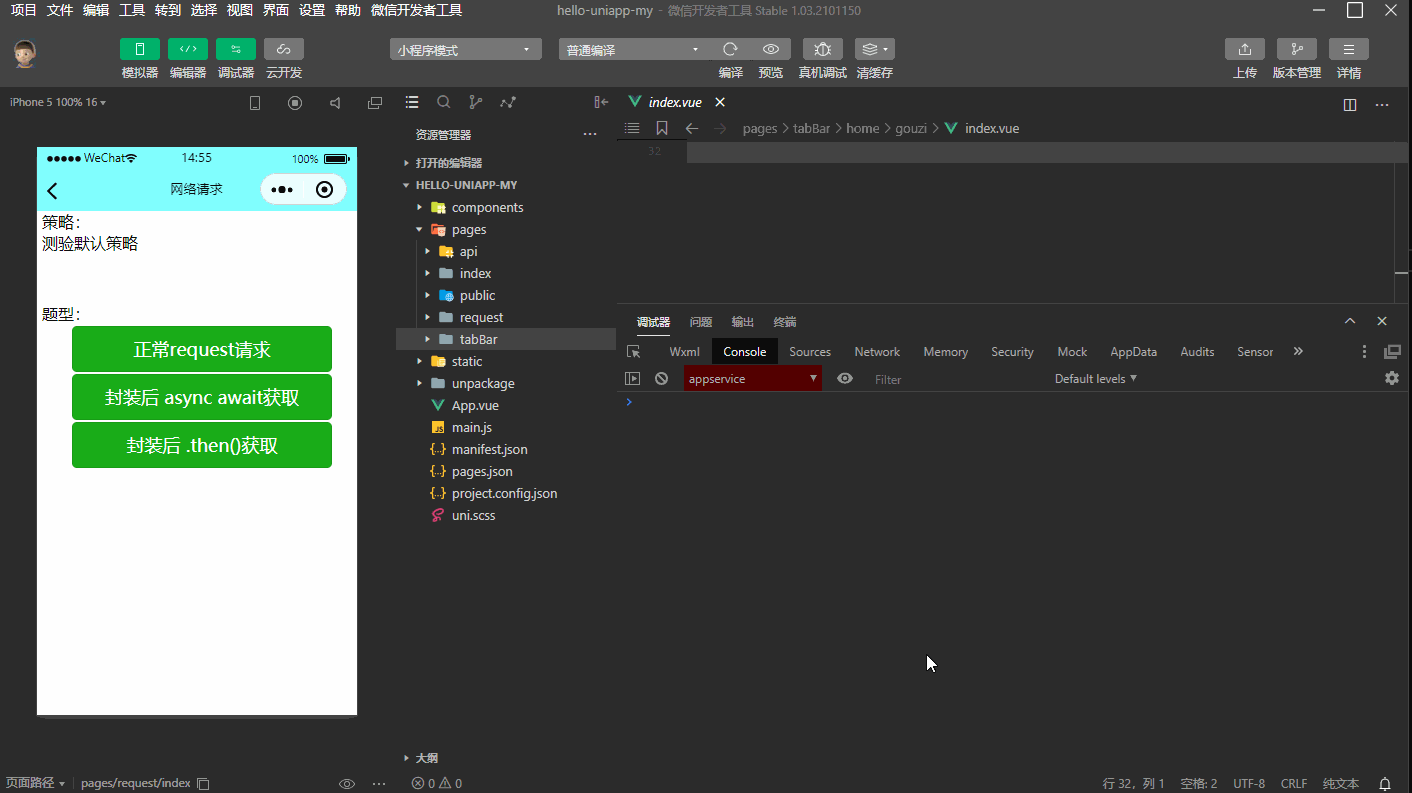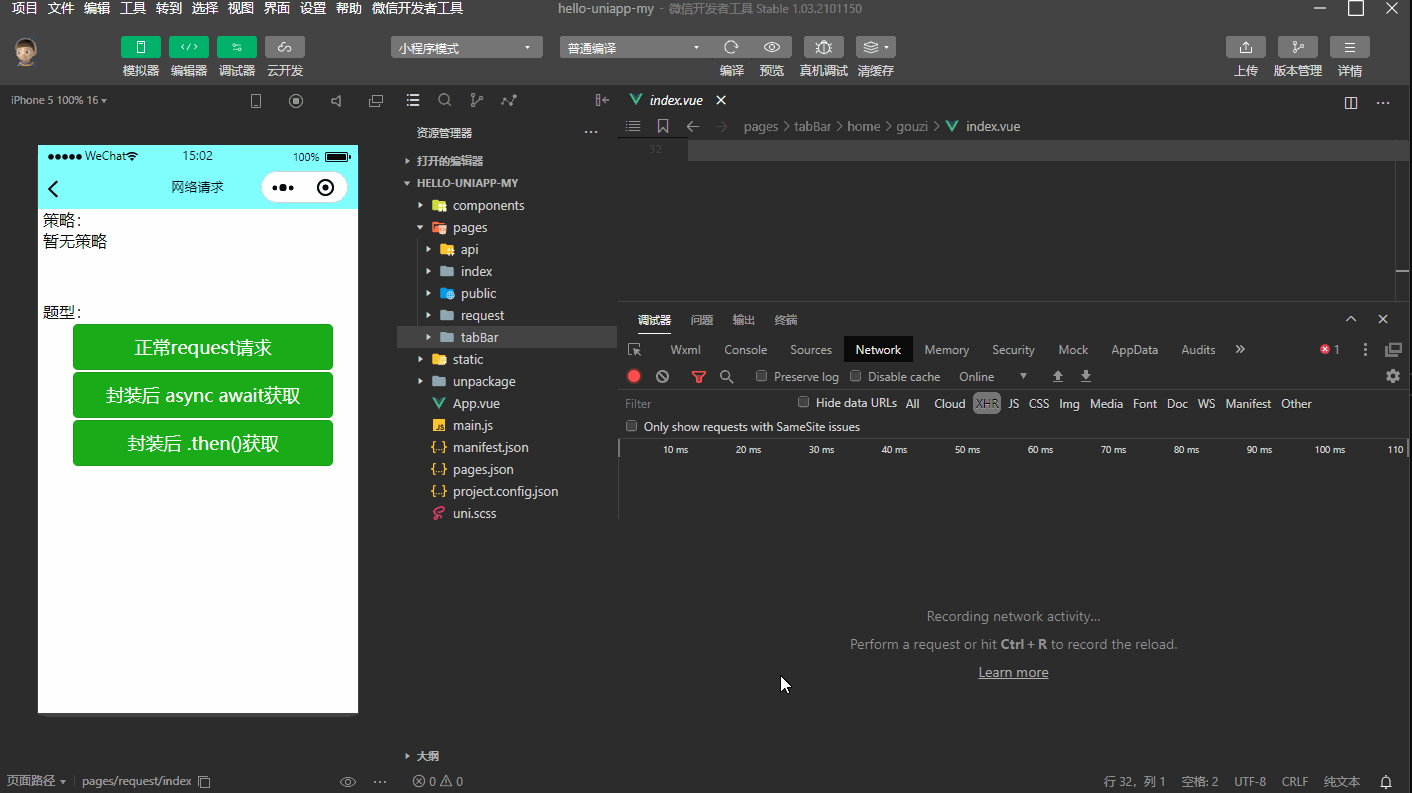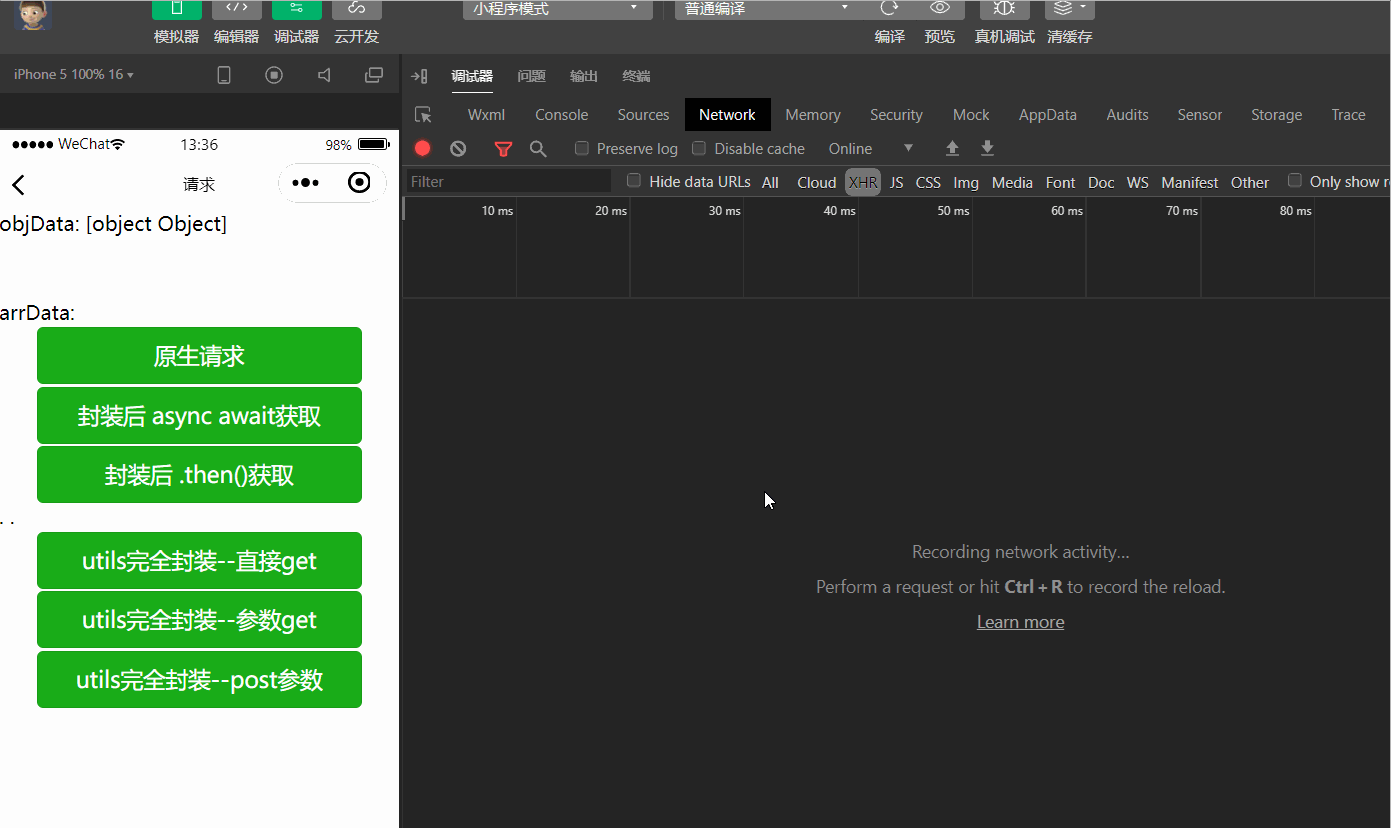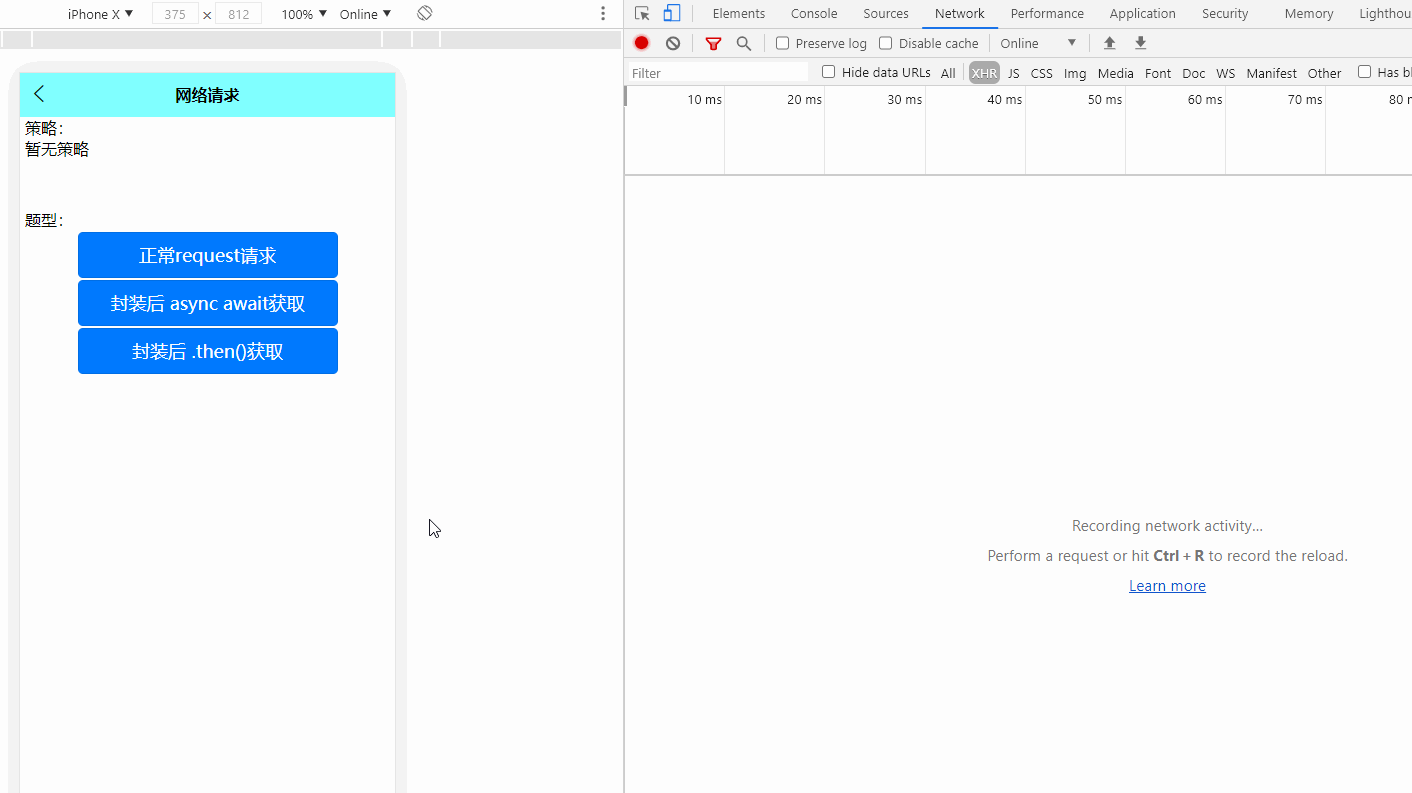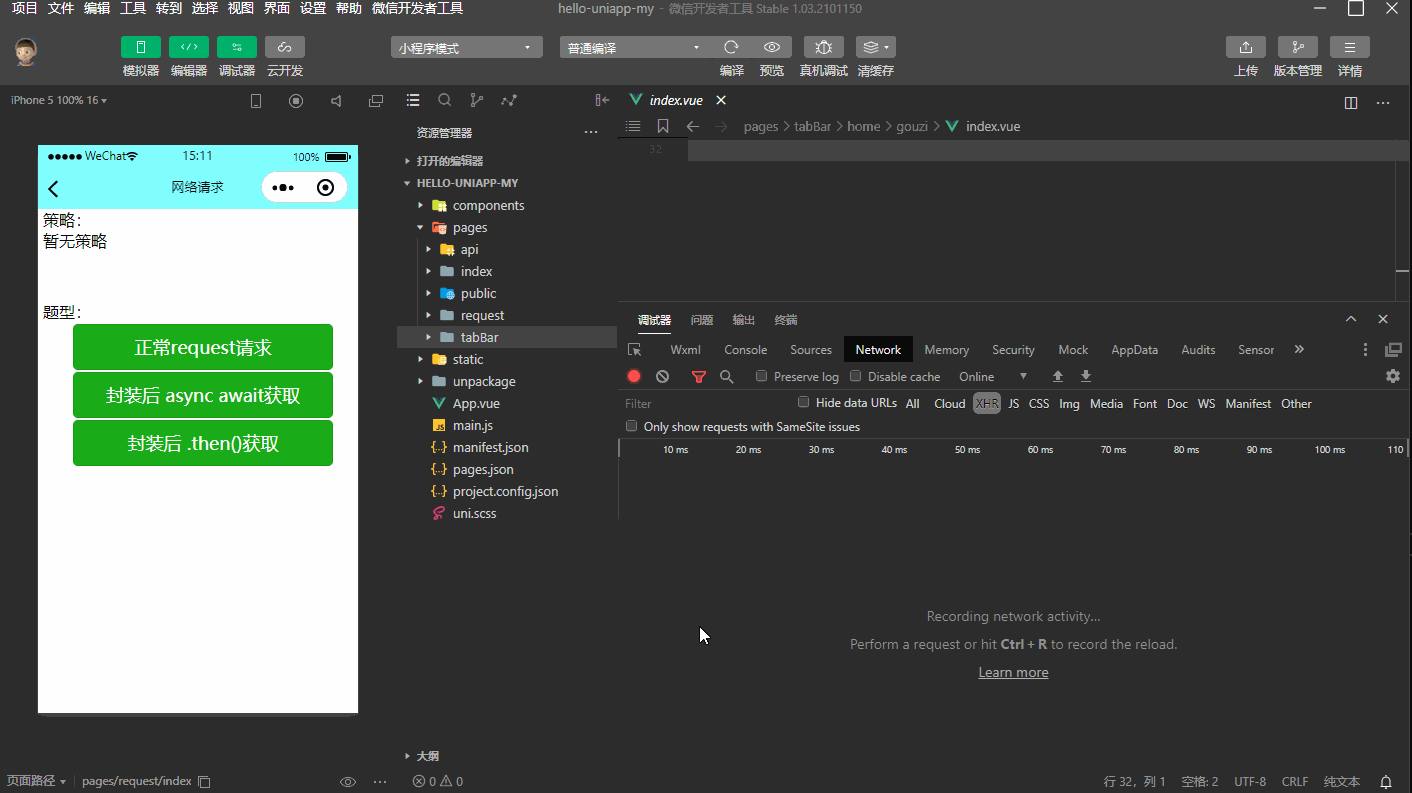uniapp网络请求封装;小程序请求接口封装;uni.request接口封装
另一篇全面封装文章
资源文章下载地址
1.正常使用uni.request()发送请求(未封装)
get() {
uni.request({
url: 'http://192.168.1.191/abc//main/jiekouming/abclist?workType=2',
data: {},
header: {
Token: 'b042b36fwq909qwe9iiidsai2323sd232dw3'
},
method: 'GET',
success: (res) => {
if (res.statusCode !== 200) {
return uni.showToast({
title: '获取数据失败',
icon: "none",
mask: true,
})
}
console.log(res);
this.arrType = res.data.data
},
fail: (error) => {
uni.showToast({
title: '请求接口失败',
})
console.log(error);
}
})
},
但是一个项目内多次请求,太过麻烦,所以我们需要封装uni.request()
2.封装接口(在aop文件夹下席间index.js) ,下方的封装api可直接复制,修改接口状态码即可使用
封装api:
// switch (process.env.NODE_ENV) {
// case 'development':
// // 公共的地址开发
// baseUrl = 'http://192.168.1.191/abc/'
// break
// case 'test':
// baseUrl = 'https://test.epen.ltd/'
// break
// case 'production':
// baseUrl = 'https://production.epen.ltd/'
// break
// default:
// baseUrl = 'https://default.epen.ltd/'
// }
// console.log('baseUrl', baseUrl)
// 公共地址
// 接口共用地址
const BASE_URL = 'http://192.168.1.191/abc/'
// 获取储存的token 设置token请求头
const token = uni.getStorageSync('token_key_name')
export const myRequest = (options) => {
// 调接口加载
uni.showLoading({
title: "加载中",
mask: true,
});
return new Promise((resolve, reject) => {
uni.request({
url: BASE_URL + options.url,
//默认参数
data: options.data || {},
// 配置请求头参数-例如token
header: {
Token: 'b042b36fwq909qwe9iiidsai2323sd232dw3'
// Accept: 'application/json',
// 'Content-Type': 'application/json',
// 'X-Requested-With': 'XMLHttpRequest'
},
method: options.method || 'GET',
// sslVerify: true,
// 接口请求成功
success: (res) => {
// 关闭加载
uni.hideLoading();
console.log('接口所有参数', res);
if (res.statusCode !== 200) {
// 不同报错信息的提示和配置
if (res.statusCode == 500) {
return uni.showToast({
title: '服务器重启中...',
icon: "none",
mask: true,
})
} else {
return uni.showToast({
title: '获取数据失败',
icon: "none",
mask: true,
})
}
}
// 调用成功且有数据 返回数据 组件内通过 .then() 或者async await 接受异步返回数据
//resolve(res.data)
//在接口200 调用成功后 才能进行判断接口内的状态码 return_code 以此判定作何操作和提示
const { statusCode, data } = res
let return_code = res.data.return_code
let return_message = res.data.return_message
switch (return_code) {
case '0':
// 成功的数据data状态码 则直接返回数据
resolve(res.data)
break
case '4011':
uni.clearStorage()
if (hasUserInfo && !isExisited && !checkToken) {
isExisited = true
uni.showModal({
title: '提示',
content: '身份失效,请重新登录!',
complete: () => {
uni.reLaunch({ url: '/pages/index/index' })
},
})
} else {
reject(res.data)
}
break
default:
// 其他的如无特定要求 则做提示
// reject(res.data)
return uni.showToast({
title: return_message || '请求失败',
duration: 2000,
icon: 'none',
})
}
},
// 接口接口失败
fail: (error) => {
// 关闭加载
uni.hideLoading();
console.log(2, error);
uni.showToast({
title: '请求接口失败',
icon: "none",
mask: true,
})
// 失败数据
reject(error)
}
})
})
}
3.引入挂载,在入口文件main.js引入,挂在到全局使用:
// 引入封装的接口api
import { myRequest } from './pages/api/index.js'
// 挂在Vue属性 全局通过this.$myRequest()可以访问到
Vue.prototype.$myRequest = myRequest
4.使用:直接在组件内,在方法内通过this.$myRequest()即可:
注意:有两种获取参数方式:
①通过 async await 拿到异步数据
②通过 .then()拿到异步数据
async await:
async getType() {
const res = await this.$myRequest({
url: 'aaa/bbb/list?workType=2',
})
console.log('使用async await获取返回的参数', res);
this.arrType = res.data
},
.then():
postType() {
// const res = this.$myRequest({
// url:'question/abc/jiekouming',
// method:'POST',
// data:{
// chapterIds:[22394],
// knowledgeIds:[13269, 13271, 14118]
// }
// })
// console.log('直接获取拿不到异步结果',res);
this.$myRequest({
url: 'question/abc/jiekouming',
method: 'POST',
data: {
chapterIds: [22394],
knowledgeIds: [13269, 13271, 14118]
}
}).then(res => {
console.log('使用.then()获取返回的参数', res);
this.qType = res.data
})
},
